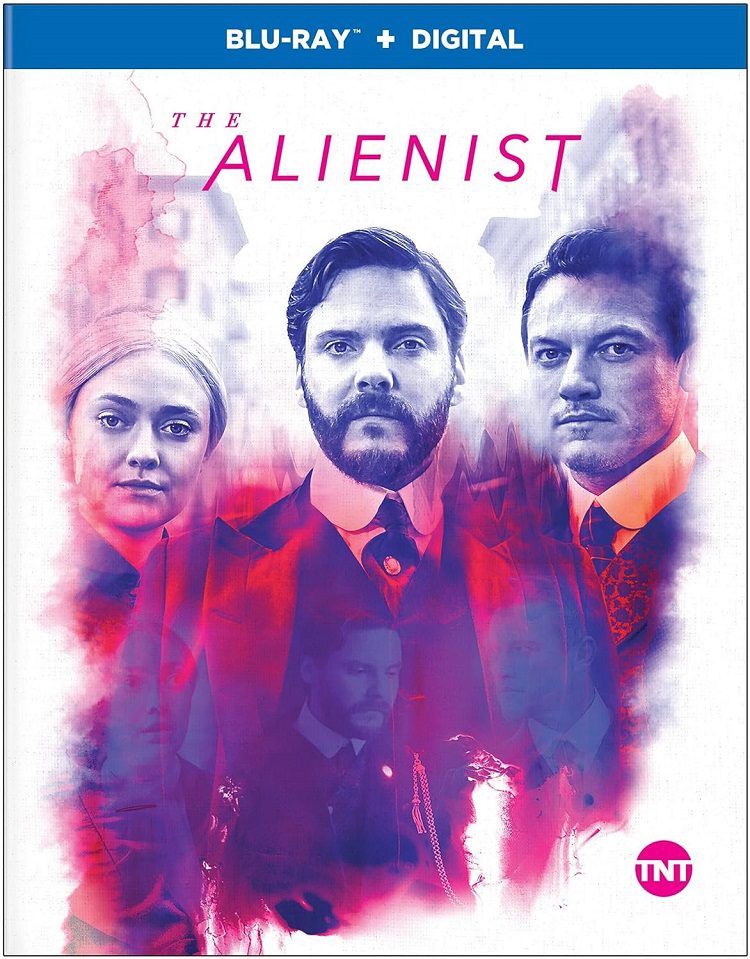
TNT’s adaptation of Caleb Carr’s The Alienist comes across as something bold and daring for the network. It has the feel of something that would make it seem like it’s a strong competitor against other cable networks such as AMC or FX, both of which have featured shows that can be graphic in detail but also rich in production values and have a tendency to showcase some strong, award-worthy performances.
Mostly known for its procedural and science fiction programming, The Alienist proves that TNT is willing to take risks, especially on something that has been in the process for a screen adaptation for decades. Sure, one could categorize it in the former, but its approach to telling the story is so non-traditional that it wouldn’t exactly be an appropriate tag for The Alienist. It’s a period piece that has procedural elements, but there are also some hints of political and cultural commentary revolving around the time in which it is set.
The Alienist takes place in 1896 New York City. A young boy dressed in women’s clothes is found murdered with his hands cut off and eyeballs gouged out. This case draws the attention of Dr. Lazlo Kriezler (Daniel Brühl), who studies the behaviors of those suffering from mental illness. His job title is that of an alienist, or what we now know as criminal psychologist.
This case is similar to another three years prior involving two children, a brother and a sister, both of whom were found murdered. One scene near the end of the episode has the mother of the two children, Mrs. Zweig (Clare Calbraith), approaching the doctor about the case and is devastated by the similarities. She still blames Lazlo for what happened to her children. It seems like this won’t be the only time this character makes an appearance, and the setup is intriguing to see where it goes from that moment. But I will be disappointed if this character interaction isn’t further investigated beyond the first episode.
Once Lazlo gets word of the case, he recruits the help of his friend, John Moore (Luke Evans). John is a newspaper illustrator who loves his women. He has a bit of a loose-living, arrogant attitude as opposed to Lazlo, who is more soft spoken, intellectual, and determined. John is asked to illustrate the crime scene, which is not an easy feat for him. Though it is his job, this is an image that won’t ever escape his memory, he later tells Lazlo.
Lazlo and John later team up with Sara Howard (Dakota Fanning), who is a secretary with the New York Police Department and doesn’t want you to forget it. She is the first woman in the police department to hold that title, and she will call people out when she catches any signs of judgment based on her gender. Her first scene, in which Lazlo and John try to get in touch with Commissioner Theodore Roosevelt (Brian Geraghty), has her questioning the men if she should try to do it with her “especially rosy mouth or sparkling blue eyes.” Although she comes off as strong and determined in her position, the moment the murder is discussed, she has to leave the room.
What I like about the characters in The Alienist is that, so far, they don’t seem completely one-note. Brühl is intense in his delivery, but the moment Lazlo encounters Mrs. Zweig, he shows a great deal of sympathy toward the character. Evans is a delight to watch, and serves as the Watson to Brühl’s Holmes. But when he has to illustrate something as horrific as a young boy’s murder, he shows how damaging it is to him. Another scene in which Sara has to defend herself to John’s insulting comments also shows that he is afraid of a woman who doesn’t fit what he has created in his mind, and when Sara retaliates, he quivers in fear.
As Sara, Fanning delivers her lines bluntly and with fierce compassion. Her performance is unlike anything she’s given so far in her career. She’s tough, and she doesn’t put up with the sexism that runs rampant. But, like the other main characters, she can’t stomach the thought of a murdered boy. And that shows that she is not as tough as we initially thought. However, Fanning’s performance is a game changer for the young actress.
Although Lazlo is investigating the case, there are politics that get in the way of his business sometimes. When Commissioner Roosevelt informs him that he’s overstepping his boundaries again, Lazlo doesn’t take note and just leave the case to the police. He still investigates because he wants to get to the bottom of it.
Jakob Verbruggen directed “The Boy on the Bridge,” while Cary Joji Fukunaga served as the episode’s writer. What the two have created is a tense, beautiful period piece revolving around a hunt for a serial killer. The show’s dark subject matter doesn’t bog it down, as Fukunaga injects some lighter moments, such as when Sara puts her foot down or when two brothers, Marcus and Lucius Isaacson (Douglas Smith and Matthew Shear, respectively), are introduced to assist in the case. The brothers are both detective sergeants, but claim their department won’t miss them based on their modern methods and the fact that they’re Jewish.
“The Boy on the Bridge” shows that The Alienist has ambition and promise to be a successful miniseries not just for TNT, but for television in general in 2018. It’s a period piece murder mystery that is thought-provoking, humorous, and beautiful to look at. The production value is almost cinematic-like, and the performances from the three leads are all top notch. It may be limited to just 10 episodes, but I’m eager to see where it goes from here.